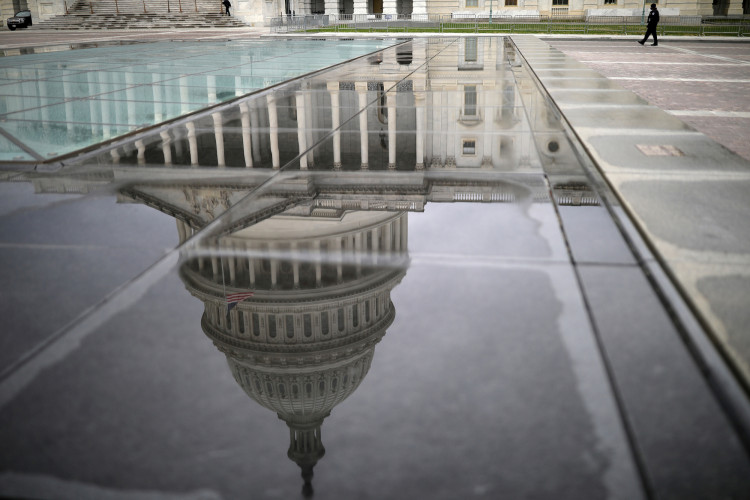A bill endorsed by President-elect Donald Trump aimed at averting a partial government shutdown failed to pass in the House of Representatives late Thursday, deepening uncertainty as the deadline to fund the government looms. The legislation, which required a two-thirds majority, fell well short with a vote of 174 to 235.
Despite support from two Democrats, the bill faced staunch opposition from 38 Republican lawmakers, many of whom expressed frustration over its provisions. This failure leaves Congress scrambling to find a resolution before the government funding deadline expires at midnight Friday.
Trump's endorsement of the bill followed a day of turmoil on Capitol Hill, marked by intense infighting among lawmakers. The measure was a trimmed-down version of an earlier proposal that collapsed after fierce criticism from Trump, Tesla CEO Elon Musk, and GOP presidential contender Vivek Ramaswamy. The revised 116-page bill extended government funding until March 14 and suspended the debt ceiling until January 2027-delaying a contentious debate until after the 2026 midterm elections.
While the proposal included $110 billion in disaster relief aid for recent storms and infrastructure repairs, it excluded provisions such as congressional pay raises and funding for Washington, D.C.'s RFK Stadium revitalization. Trump championed the bill on Truth Social, urging lawmakers, "All Republicans, and even the Democrats, should do what is best for our Country, and vote 'YES' for this Bill, TONIGHT!"
However, bipartisan opposition proved insurmountable. Democrats were incensed that Republicans reneged on an earlier bipartisan agreement. In a heated closed-door meeting, members chanted "Hell no" before emerging to announce near-unanimous opposition to the revised bill.
Meanwhile, hardline conservatives in the House Freedom Caucus also rejected the measure, citing its inclusion of debt ceiling provisions and lack of spending cuts. Representative Chip Roy of Texas voiced his frustration on X, writing, "Old bill: $110BB in deficit spending (unpaid for), $0 increase in the national credit card. New bill: $110BB in deficit spending (unpaid for), $4 TRILLION+ debt ceiling increase with $0 in structural reforms for cuts."
The failed vote comes as the national debt has surged past $36 trillion and the deficit exceeds $1.8 trillion, intensifying concerns about fiscal responsibility among lawmakers. While House Speaker Mike Johnson, R-La., has not announced his next steps, the setback raises questions about his ability to navigate deep divisions within his party.
The legislative impasse follows the collapse of an earlier bipartisan agreement that would have extended funding until March and included a broader range of policy riders. Trump and Musk harshly criticized that proposal, calling it fiscally irresponsible. Their comments derailed the deal, forcing Republicans to draft a more streamlined alternative.
Trump's insistence on avoiding a near-term debt ceiling debate reflects his strategic priorities as he prepares to take office in January.






